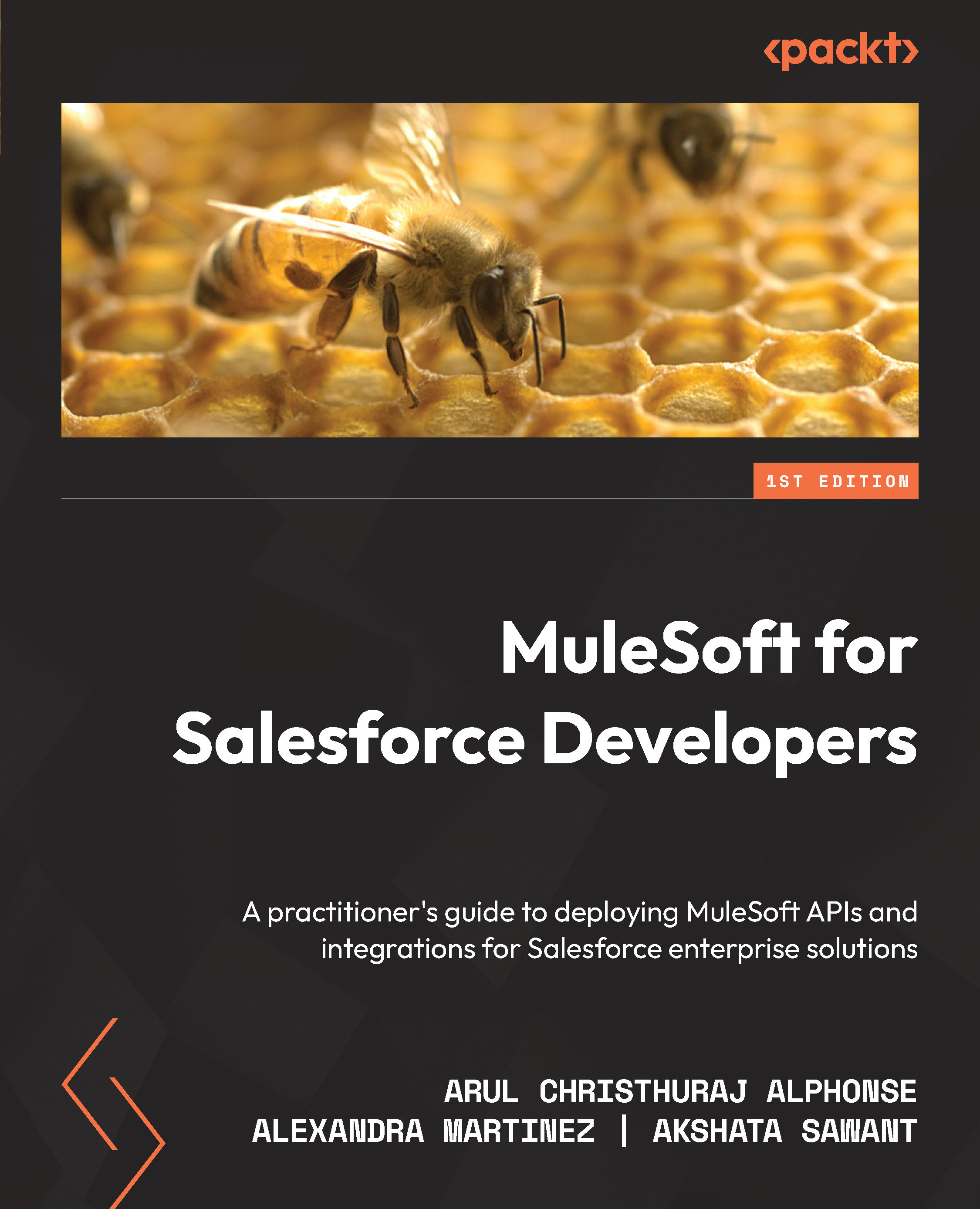Introducing MuleSoft accelerators
Accelerators are predesigned Mule applications, API specifications, and documentation that help to speed up the implementation life cycle of a project. These predesigned applications are stored in Exchange as a template that can be downloaded as a .jar file in order to create a Mule application project.
When we develop an interface, we can take related templates from Exchange and customize them based on the requirements to speed up the development.
There are different accelerators available in Exchange to support different use cases for different businesses.
Try to download the SAP ECC Products System API SAP accelerator from Exchange as a .jar file and import it into Anypoint Studio.
It creates a Mule application with all the implementation details, as shown in Figure 13.27:
Figure 13.27 – Mule application created using SAP accelerator
Once created, we can customize and configure SAP ECC server details to...
































































